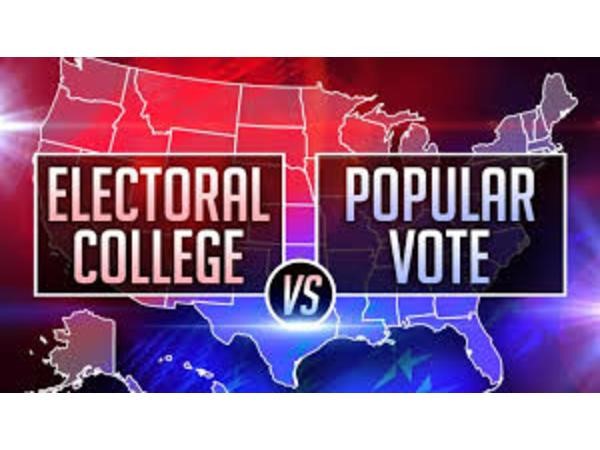In 2016, Donald Trump lost the popular vote by the greatest margin of anyone elected in the history of Presidency in the United States. But it did not matter- it is the Electoral College, not the national popular vote, that determines who wins the Presidency in the United States.
In 2016, Hillary Clinton won the popular vote by 3 million votes- but lost the Presidency.
In 2000, Al Gore also won the popular vote- but lost the Presidency.
Despite the majority of the population in support of their presidential candidacy, this did not land either party the highest office of the land.
Why? – because this important decision, falls to the Electoral College.
The Electoral College was developed in 1787. Founders of the United States of America aspired to quash the formation of powerful factions and political parties. The idea behind the Electoral College was that a presidential candidate could not solely rely on popular majorities or Congress.
There are 538 Electoral College votes in the United States. Simple math dictates that the Presidential candidate must win 270 electoral votes to be crowned.
The total number of electoral votes assigned to each State is based on the number of Senators (2 in each state) plus the number of Representatives (at least 1). The number of Representatives is determined based on population- roughly one for every 500 000 people.
Therefore, when Americans cast their ballots, they are voting for a line-up of electors, who are appointed by their state’s political parties, who are pledged to support that party’s candidate.
Herein lies the source of much contention– there are arguments that the States with smaller populations are overrepresented in the Electoral College, as every state gets at least 3 elector votes, regardless of population.
For example, Wyoming has three votes and a population of only 580,000. The argument is that, this gives individual voters far more influence in the election than the millions in densely populated states like Florida, California and New York.
Adding only further to the dissatisfaction in the Electoral College system, is that American citizens who live in territories like Puerto Rico, Guam and the U.S. Virgin Islands are not represented by any electors.
Much debate over the years has been about abolishing the Electoral College entirely. However, given the Electoral College has only ever benefited the Republican Party, and the Republican Party currently holds majority in the Senate- it is unlikely this was of selecting a President, is going anywhere soon.
Article by Shelby Thompson
Shelby is one of our solicitors here at Brooke Winter Solicitors. She provides assistance for criminal, traffic, child protection and domestic violence matters.
As a busy practitioner, Shelby has the skill and proficiency required of a legal advocate to protect the rights of her client’s across various jurisdictions. Shelby has worked in many different capacities around the globe, giving her the ability to adapt easily in any situation.





